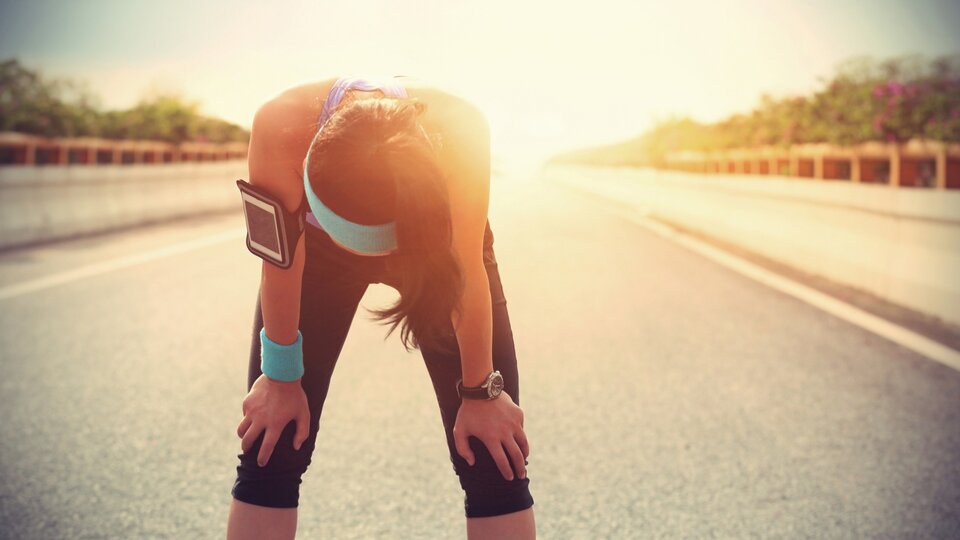Pushing your limits has no official season, but the summer can bring a heat that can humble you. As the heat comes, it is crucial to understand the environmental implications on performance so you can overcome them. The heat significantly affects your body’s physiology, whether you’re heading outside for cardio, traveling to a breathtaking hiking destination, or planning for some summer recreational fun.
Let’s discuss how heat affects your physiology during exercise, potential risks, and strategies to optimize your summer workouts as the temperature rises. It’s time to handle the heat and elevate your training with this knowledge!
Heat on Your Physiology
The physiological effects of training in high heat are widespread and highly impactful. Below are some effects of training in the heat when the body is not adapted or acclimated. These negative physiological effects result in increased fatigue, decreased performance, feeling hotter, and decreased mood.
-
The rate of muscle glycogen depletion is accelerated
-
Core temperature increases
-
Muscle blood flow decreases
-
Cardiac output decreases
-
The sweat rate is not enough
-
Perceptual heat stress increases
-
Lower VO2 max
Temperatures over 77°F (25°C) decrease performance, with greater impairments when dehydrated (Pryor). Humidity also plays a role in our body’s response to heat.
Potential Risks
Feeling hotter, more tired, and lower performance are all risks of training unprepared in the heat. Beyond these, the potential risks of unacclimated training in the heat can lead to heat illness and heat stroke.
Heat illness is a spectrum of severity symptoms that includes muscle cramps, flushed and moist skin, nausea, vomiting, and potentially a fever (Hopkins). Heat stroke is the progression of prolonged heat illness, including most symptoms of heat illness in addition to a high fever, confusion, rapid heart beat, no appetite, and potentially a coma (Hopkins).
Strategies to Optimize Training in the Heat
Heat Adaptation Regimen
Jumping straight into high temperatures without prior exposure will take the body by surprise and limit performance. Luckily, much research shows that heat adaptation can occur over time, leading to increased performance, such as in V02 max (Waldron and Tyler). Heat adaptation regimens lasting 1-2 weeks long provide strong improvements in the heat, with longer regimens providing the best benefits (Tyler).
A heat adaption regime is a planned exposure to the heat in combination with exercise. It improves the body’s thermoregulation in the heat, thus improving heat tolerance via enhancing various thermoregulatory mechanisms, such as sweating, lowering heart rate, and lowering core body temperature (Waldron).
An example heat adaptation regimen based on the research (Pryor):
-
Ten consecutive days of 60-90 minute bouts of exercise in the heat
-
The lower the intensity of exercise in the heat, the longer the acclimation time needed
-
Only increase the initial intensity after at least the first three days of exposure
-
The heat adaptation environment should match the worst potential environment expected
-
Cardio activities, manual labor, and competition activities all work
You’ll know you’re acclimated to the heat when your heart rate, sweat rate, and rate of perceived exertion all decrease. Be careful not to stop training in the heat because heat adaptation will begin to be lost at two weeks and completely gone within one month. If it isn’t hot enough to adapt outside, try exercising in a room with a heater.
Preparation
If you don’t have the time or ability to begin a heat adaptation regimen, you can at least prepare for the hot days ahead with these tips.
-
Plan for hydration and drink water often
-
Wear light-colored clothes, wear a hat, and sunscreen
-
Take breaks in the shade
Be Mindful
Your training or activities in the heat may not require a heat adaption program or the most intense preparation if they are a shorter time and intensity. Remember, you don’t have to train your hardest or longest on hot days. Start by spending less time and intensity than you normally do in cooler environments. Gradually increase time and intensity as your body adapts.
Listen to your body and be mindful of what it may tell you by paying attention to your physiological cues, such as fatigue, thirst, performance, sweat rate, heart rate, etc. We want you to have an amazing summer with the most time in the heat that makes sense for your situation, so remember to be mindful of your time in the heat!
Sources
-
Tyler CJ, Reeve T, Hodges GJ, Cheung SS. The Effects of Heat Adaptation on Physiology, Perception and Exercise Performance in the Heat: A Meta-Analysis. Sports Med. 2016 Nov;46(11):1699-1724. doi: 10.1007/s40279-016-0538-5. Erratum in: Sports Med. 2016 Nov;46(11):1771. doi: 10.1007/s40279-016-0572-3. PMID: 27106556.
-
Waldron M, Fowler R, Heffernan S, Tallent J, Kilduff L, Jeffries O. Effects of Heat Acclimation and Acclimatisation on Maximal Aerobic Capacity Compared to Exercise Alone in Both Thermoneutral and Hot Environments: A Meta-Analysis and Meta-Regression. Sports Med. 2021 Jul;51(7):1509-1525. doi: 10.1007/s40279-021-01445-6. Epub 2021 Apr 3. PMID: 33811616; PMCID: PMC8222027.
-
Pryor JL, Johnson EC, Roberts WO, Pryor RR. Application of evidence-based recommendations for heat acclimation: Individual and team sport perspectives. Temperature (Austin). 2018 Oct 13;6(1):37-49. doi: 10.1080/23328940.2018.1516537. PMID: 30906810; PMCID: PMC6422510.
-
(n.d.). Heat-Related Illnesses (Heat Cramps, Heat Exhaustion, Heat Stroke). John Hopkins Medicine. https://www.hopkinsmedicine.org/health/conditions-and-diseases/heatrelated-illnesses-heat-cramps-heat-exhaustion-heat-stroke
